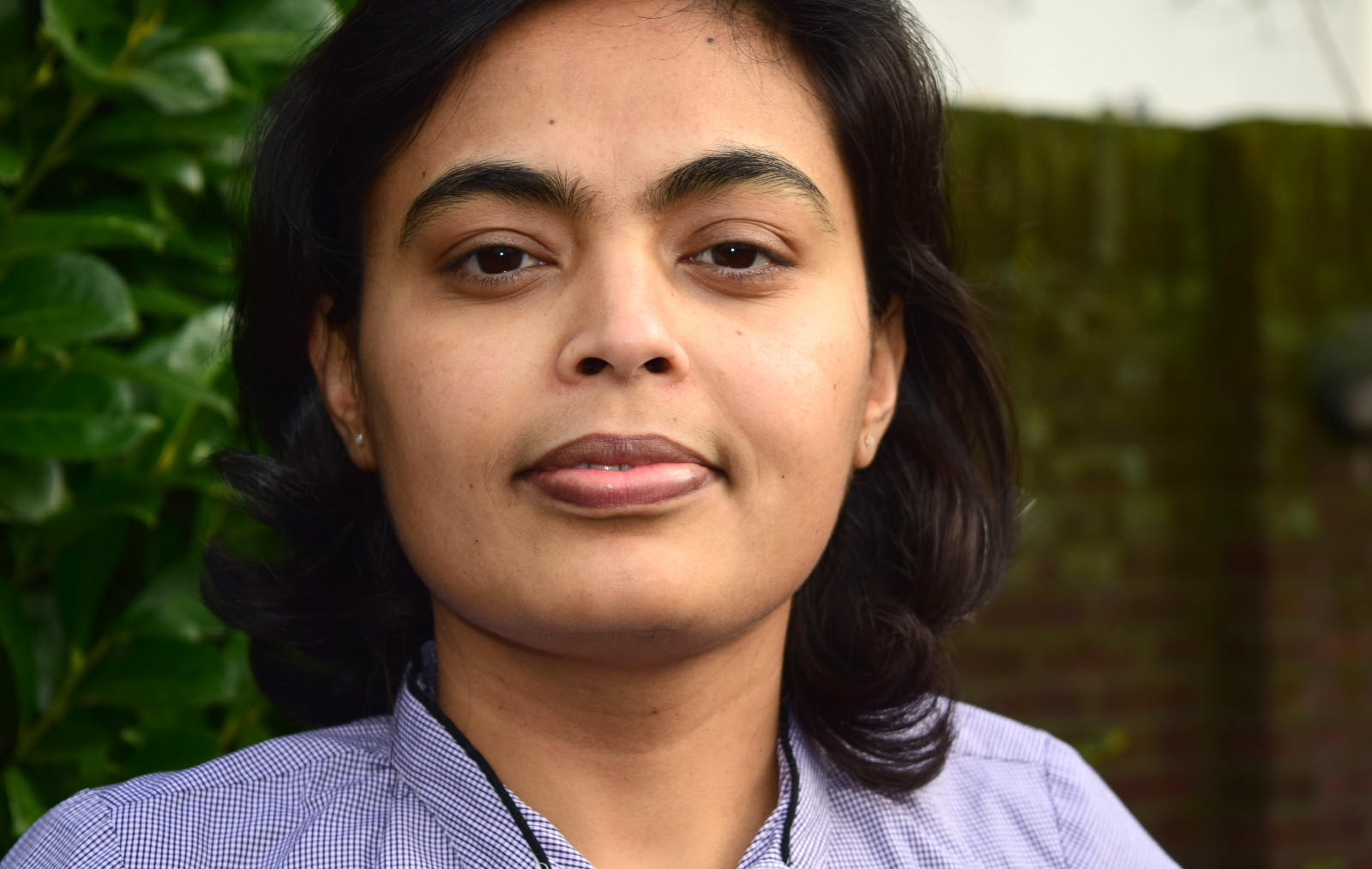
Shrivalli Bhat on creating a new scientific method for making healthy home-made bread.
Almost every day that she was doing her PhD at Cambridge Shrivalli Bhat would have a supermarket-bought sandwich for her lunch and every day she would feel guilty. She has always been very health conscious and preferred to eat home-made food, but she was too impatient to spend hours making her own bread.
Now she and a team of product developers have created what they say is a revolutionary scientific technique for making home-made bread in just five minutes – minus cooking time – and Shrivalli hopes to launch it to market in the next months if she can raise start-up funds through a Kickstarter campaign.
LoafNest uses state of the art silicone liner technology and specially designed cast iron casserole dishes which release heat quickly to bring a high-heat, high-humidity professional baking environment to home kitchens.
Shrivalli [2007] says that the non-stick liner helps to seal the moisture in, to make a crunchy crust and ensures the bread is easy to turn out. She adds that the technique also gives a nice texture to the bottom of the bread, similar to professionally baked artisan breads. Bakers can use any ingredients they want and much less yeast than with normal bread recipes and there is no need to add preservatives, additives or artificial flavour enhancers.
Cambridge
Shrivalli drew on her scientific background for her business. She did a PhD in Physics at the University of Cambridge with the help of a Gates Cambridge Scholarship. Prior to that she had majored in Electronics, Physics and Maths for her Bachelors in Karnatak College in Dharwad, India, and had done a master’s in Physics in Karnatak University. Before coming to Cambridge she worked as a research assistant at the Indian Institute of Science, then at General Electric in India and Alstom Power in the UK.
She began her PhD in 2007, focusing on organic polymer transistors under Professor Henning Sirringhaus' Optoelectronics group at the Cavendish Laboratory. One of the promised benefits of organic electronics is their potential low cost compared to traditional inorganic electronics.
Shrivalli’s work built on that of another Gates Cambridge Scholar, Dr Jana Zaumseil, on luminescence in organic transistors, the fundamental building block for electronic devices. In an effort to bring down the operating voltage, Shrivalli tried different materials and observed luminescence in ion gel gated, thin film organic semiconductor transistors at low voltages. She then investigated the light emission mechanism behind these devices, showing that even with the presence of ions light emission could be observed.
Shrivalli says the Gates Cambridge community was a very important part of her time at Cambridge. “It influenced me a lot, particularly the contact with people of so many different nationalities. Cambridge gave me the world and being part of the very diverse Gates Cambridge community was a hugely valuable experience,” she says.
While she was at the university she attended a lot of entrepreneurial sessions at the Judge Business School. After she finished her PhD therefore Shrivalli decided to set up her own online platform in India to connect campaigners, charities and donors. However, she hit huge challenges while building the structure of the site and could not turn it into a viable business.
Now living in an innovative and entrepreneurial community in Eindhoven, she has turned her passion for healthy eating into a business idea.
She says: “Bread is such an essential part of our lives. In many cultures bread means food. But the bread we eat today is flavourless and full of preservatives and stabilisers. I want everyone to eat healthy and experience the real joys of life like the taste of a real fresh artisan bread. Shouldn’t eating healthy be a human right?”
She adds: “LoafNest, the product we have developed, is simple to use and delivers consistent results. Getting used to it is as easy as getting used to buying bread from a bakery!”
*The Kickstarter fundraising campaign finishes on 24th February.
Shrivalli Bhat
- Alumni
- India
- 2007 PhD Physics
- Queens' College
I created LoafNest in an effort of revolutionizing the home bread making and to eat healthy. And, I believe that it's possible with LoafNest, with improved no knead method, to make healthy artisan home made bread more regularly.
Kickstarter Link :
https://www.kickstarter.com/projects/trfl/loafnest












